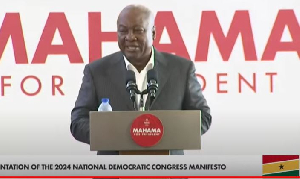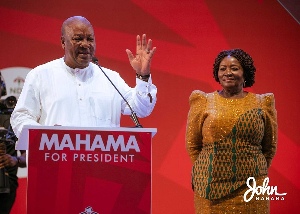In my humble opinion , politicians possess different levels of temperament, integrity, competence, experience, knowledge, skills and abilities, so they are never the same, as a matter of fact.
In Ghana today, we have politicians in our midst whose well-packed rhetoric only deludes and proselytises millions of unsuspecting Ghanaians.
After attesting to so much political gimmicks, unbridled inebriation, incompetence, and frequent propagation of vile propaganda, many Ghanaians have ceased believing such politicians.
Yes, we do need true leaders. Obviously, we need individuals who have vision, direction, and strength to reach our goals.
There is no gainsaying the fact that Ghana’s economy was in tatters under the erstwhile Mahama administration and every honest critic can attest to the fact that before the deadly coronavirus, the Akufo-Addo/Bawumia administration dutifully raised the economic growth and reduced the inflation to the barest minimum.
In my view, it is quite unreasonable for anyone to argue somewhat bizarrely that facts and figures are not the determinants of a blossoming economy. How ironic?
How can any trained mind claim somewhat incoherently that Ghana’s economy under former President Mahama, 3.4% growth and 15.4% inflation, was better than the Akufo-Addo/Bawumia administration’s record before the insidious coronavirus ,8.6% growth and 7.5% inflation?
Given the harsh conditions in the absence of the pernicious coronavirus and the intractable Ukraine/Russia conflict, it is boundlessly unconscionable for the NDC loyalists to keep insisting that Mahama has a better economic record.
Where was the sound economic foundation under Mahama when 14% economic growth in 2011 dropped to 3.4% by December 2016 where there was no global economic crisis?
How can anyone claim excellence in economic management when single digit inflation was dragged to 15.4% by December 2016 in the absence of universal economic challenges?
What do you call solid economic foundation when the agricultural sector grew in negative consistently in the absence of the armyworm invasion?
Where was the favourable economic foundation when the industry sector grew appallingly over the years?
How can NDC operatives beat their chests and claim ownership of solid economic foundation when the GDP shrunk from $47 billion in 2011 to $40 billion by December 2016?
Where was the sound economic management when the erstwhile Mahama administration spent profligately and invariably raising Ghana’s debt from $9.5 billion in 2009 to a staggering $122.4 billion by December 2016 with a little to show for it?
Where was the solid economic foundation when former President Mahama unabashedly claimed that his administration had edaciously consumed all the meat on the bone?
The fact of the matter is that the late Mills left a sound economic growth of 14% and Mahama wilfully reversed it to 3.4%; the late Mills left the agricultural growth of 7.4% and Mahama dragged it to 2.5%; the late Mills single digit inflation was reversed to 15.4%; GDP of $47 billion was dragged to $40 billion by Mahama.
To be quite honest, Ghana went into the throes of economic collapse due to the calamitous errors in decision-making under the leadership of Ex-President Mahama.
Take, for example, Ghana’s economic growth slowed for the fourth consecutive year to an estimated 3.4% in 2015 from 4% in 2014 as energy rationing (dumsor), high inflation, and ongoing fiscal consolidation weighed on economic activity (World Bank, 2016).
Moreover, the high inflation rate remain elevated at 18.5% in February 2016 compared to 17.7% in February 2015, even after the Central Bank’s 500 bps policy rate hikes (the inflation stood at 15.8 per cent as of October 2016).
It is worth stressing that before the insidious coronavirus, the Akufo-Addo/Bawumia administration efficiently raised the economic growth. Ghana’s economy grew provisionally by 8.5 percent in 2017 compared to 3.7 percent in 2016 (Ghana Statistical Service, 2018).
Indeed, Ghana’s economic growth, just before the pernicious coronavirus, stood at around 8.6% from 3.4% in December 2016.
Interestingly, in the first two years of the Akufo-Addo/Bawumia administration, the Industry sector recorded the highest growth rate of 16.7 percent, followed by Agriculture 8.4 percent and the Services 4.3 percent.
Services share of GDP decreased from 56.8 percent in 2016 to 56.2 percent in 2017. The sector's growth rate also decreased from 5.7 percent in 2016 to 4.3 percent in 2017.
However, two of the subsectors in the services sector recorded double-digit growth rates, including Information and Communication 13.2 percent and Health and Social Work 14.4 percent.
The Industry sector, the highest growing sector with a GDP share of 25.5 percent, had its growth rate increasing from -0.5 percent in 2016 to 16.7 percent in 2017.
The Mining and Quarrying subsector recorded the highest growth of 46.7 percent in 2017.
The Agriculture sector expanded from a growth rate of 3.0 percent in 2016 to 8.4 percent in 2017. Its share of GDP, however, declined from 18.7 percent in 2016 to 18.3 percent in 2017. Crops remain the largest activity with a share of 14.2 percent of GDP.
The Non-Oil annual GDP growth rate decreased from 5.0 percent in 2016 to 4.9 percent in 2017. The 2017 Non-oil GDP for industry recorded a growth rate of 0.4 percent, compared with 4.9 percent in 2016. Growth in the fourth quarter of 2017 reached 8.1 percent compared to 9.7 percent in the third quarter (GSS, 2018).
Let us be honest, how can anyone clamour inexorably for the return of someone who wilfully collapsed Ghana’s economy in the absence of the unspeakable coronavirus and the protracted Ukraine/Russia war?
K. Badu, UK.
k.badu2011@gmail.com
Opinions of Wednesday, 23 October 2024
Columnist: Kwaku Badu















